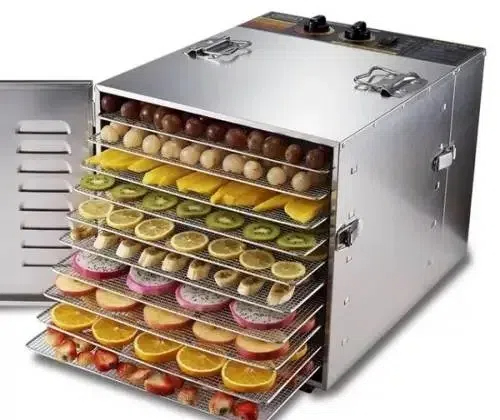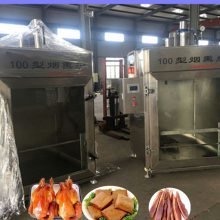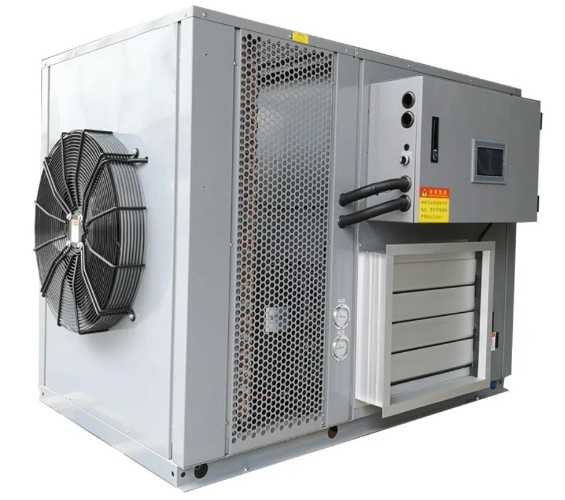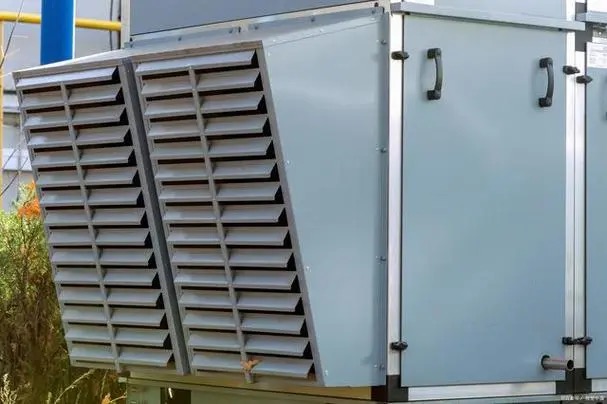
Content Menu
● Understanding Food Drying
● Traditional Dryers
● Heat Pump Dryers
● Key Differences Between Heat Pump Dryers and Traditional Dryers
● Applications of Heat Pump Dryers in Food Processing
● Advantages of Heat Pump Dryers in Food Quality
● Cost Considerations
● Maintenance and Longevity
● Conclusion
● Related Questions and Answers
>> 1. What are the benefits of using heat pump dryers for food processing?
>> 2. Can heat pump dryers be used for all types of food?
>> 3. How do heat pump dryers compare in cost to traditional dryers?
>> 4. What is the ideal temperature for drying food in a heat pump dryer?
>> 5. Are heat pump dryers environmentally friendly?
Understanding Food Drying
Food drying is a method of preserving food by removing moisture, which inhibits the growth of bacteria, yeasts, and molds. This process can enhance flavors and extend the shelf life of various food products, including fruits, vegetables, herbs, and meats. The choice of drying technology plays a significant role in the quality of the dried product.

Traditional Dryers
Traditional dryers, often referred to as convection or direct dryers, use hot air to evaporate moisture from food products. These dryers can be categorized into several types, including:
1. Convection Dryers: These dryers circulate hot air around the food, promoting even drying. They are commonly used for fruits and vegetables.
2. Drum Dryers: In this method, food is spread onto heated drums, where moisture is evaporated. This technique is often used for purees and liquid foods.
3. Solar Dryers: Utilizing solar energy, these dryers are eco-friendly but depend heavily on weather conditions.
While traditional dryers are widely used, they have some limitations, particularly in energy efficiency and product quality.
Heat Pump Dryers
Heat pump dryers represent a more advanced technology in the food drying industry. They operate by using a refrigeration cycle to transfer heat from the environment to the drying chamber. This method offers several advantages:
1. Energy Efficiency: Heat pump dryers consume significantly less energy compared to traditional dryers. They can operate at lower temperatures, which helps preserve the nutritional value and flavor of the food.
2. Consistent Drying Conditions: These dryers maintain a stable temperature and humidity level, ensuring uniform drying and preventing over-drying or under-drying.
3. Versatility: Heat pump dryers can be used for a wide range of food products, including delicate items that require gentle drying.
Key Differences Between Heat Pump Dryers and Traditional Dryers
1. Energy Consumption: Heat pump dryers are more energy-efficient, using up to 50% less energy than traditional dryers. This is particularly beneficial for large-scale food processing operations where energy costs can be significant.
2. Drying Temperature: Traditional dryers often operate at high temperatures, which can lead to the loss of volatile compounds and nutrients. In contrast, heat pump dryers operate at lower temperatures, preserving the quality of the food.
3. Moisture Control: Heat pump dryers have advanced moisture control systems that allow for precise regulation of humidity levels. This feature is crucial for achieving optimal drying results and maintaining product quality.
4. Environmental Impact: The lower energy consumption of heat pump dryers translates to a reduced carbon footprint, making them a more environmentally friendly option compared to traditional dryers.
5. Initial Investment: While heat pump dryers may have a higher initial cost, their energy savings and efficiency can lead to lower operational costs over time, making them a cost-effective choice in the long run.

Applications of Heat Pump Dryers in Food Processing
Heat pump dryers are increasingly being adopted in various food processing applications due to their efficiency and product quality. Some common applications include:
1. Fruit Drying: Heat pump dryers are ideal for drying fruits like apples, bananas, and berries, preserving their flavor and nutritional content. The gentle drying process helps maintain the color and texture of the fruits, making them more appealing to consumers.
2. Vegetable Drying: Vegetables such as carrots, peas, and bell peppers can be dried effectively without losing their color and texture. This is particularly important for maintaining the visual appeal of dried vegetables in culinary applications.
3. Herb Drying: Delicate herbs like basil and oregano benefit from the gentle drying process of heat pump dryers, retaining their essential oils and flavors. This is crucial for the culinary industry, where the quality of herbs can significantly impact the final dish.
4. Meat Drying: For products like jerky, heat pump dryers provide the necessary conditions for safe and effective drying. The controlled environment helps prevent the growth of harmful bacteria while ensuring the meat retains its flavor and texture.
Advantages of Heat Pump Dryers in Food Quality
One of the most significant advantages of heat pump dryers is their ability to preserve the quality of food products. The lower drying temperatures help retain the nutritional value of the food, including vitamins and minerals that can be lost in traditional drying processes. Additionally, the controlled humidity levels prevent the formation of undesirable textures and flavors, resulting in a superior final product.
Cost Considerations
When considering the investment in drying technology, it is essential to evaluate both the initial costs and the long-term savings. While heat pump dryers may require a higher upfront investment, their energy efficiency can lead to substantial savings over time. Businesses that process large volumes of food can benefit significantly from the reduced energy costs associated with heat pump technology.
Maintenance and Longevity
Heat pump dryers are designed for durability and require less maintenance compared to traditional dryers. The closed-loop system of heat pump dryers minimizes wear and tear on components, leading to a longer lifespan. Regular maintenance, such as cleaning filters and checking for leaks, can further enhance the efficiency and longevity of the equipment.
Conclusion
In conclusion, the choice between heat pump dryers and traditional dryers significantly impacts the quality and efficiency of food drying processes. While traditional dryers have been the standard for many years, heat pump dryers offer numerous advantages, including energy efficiency, consistent drying conditions, and better preservation of food quality. As the food processing industry continues to evolve, investing in advanced drying technology like heat pump dryers can lead to improved product quality and sustainability.

Related Questions and Answers
1. What are the benefits of using heat pump dryers for food processing?
Heat pump dryers offer energy efficiency, consistent drying conditions, and better preservation of flavor and nutrients. They are particularly beneficial for large-scale operations where energy costs can be significant.
2. Can heat pump dryers be used for all types of food?
Yes, heat pump dryers are versatile and can be used for fruits, vegetables, herbs, and meats. Their ability to operate at lower temperatures makes them suitable for delicate items.
3. How do heat pump dryers compare in cost to traditional dryers?
While heat pump dryers may have a higher initial cost, they can lead to lower operational costs due to energy savings. Over time, the investment can be justified by the reduced energy bills.
4. What is the ideal temperature for drying food in a heat pump dryer?
Heat pump dryers typically operate at lower temperatures, around 30-70°C, depending on the type of food being dried. This range helps preserve the quality of the food while effectively removing moisture.
5. Are heat pump dryers environmentally friendly?
Yes, heat pump dryers have a lower carbon footprint due to their energy efficiency, making them a more sustainable option. Their reduced energy consumption contributes to a smaller environmental impact compared to traditional dryers.












